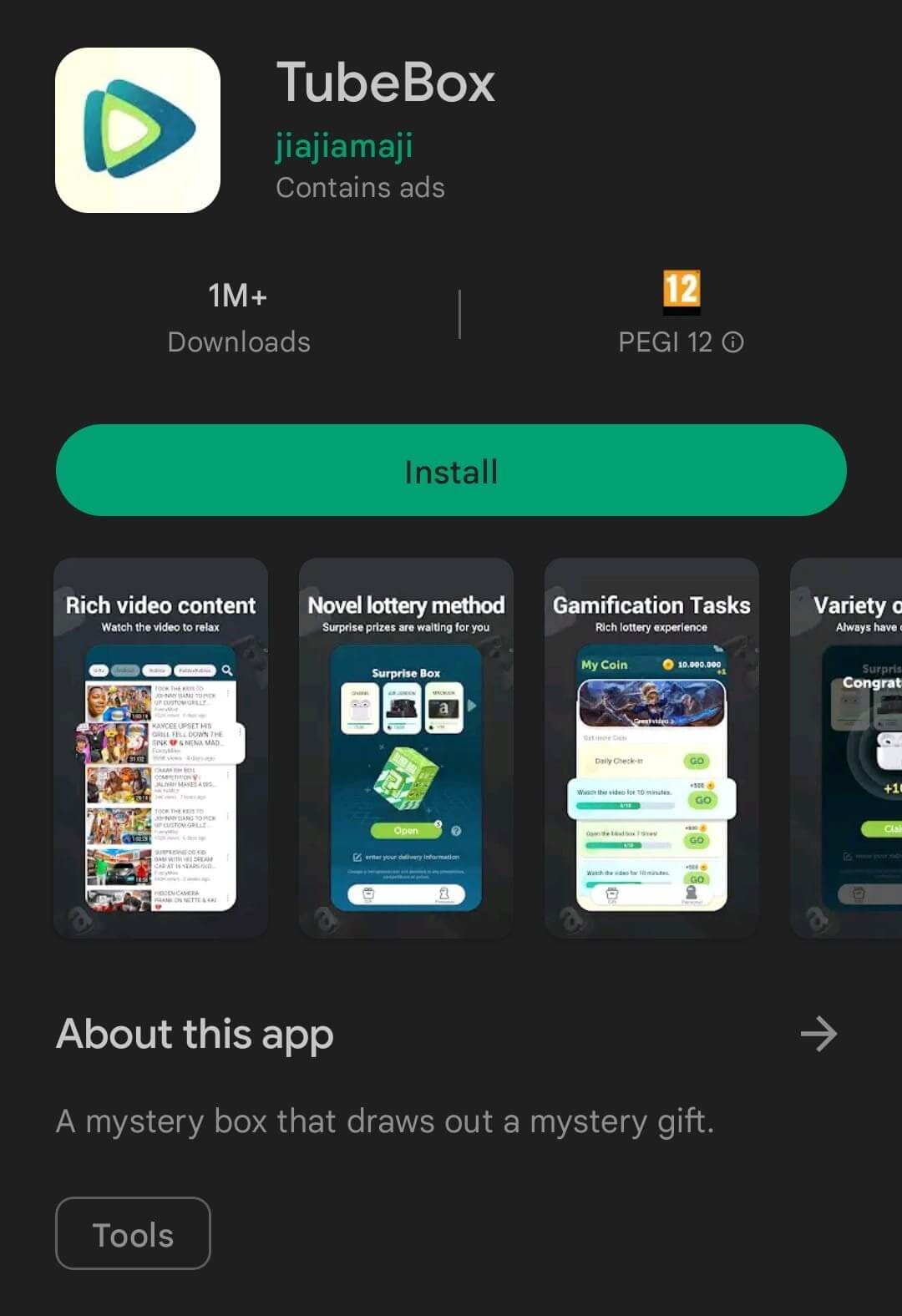Contents:
Multiple apps pretending to be useful utilities and system optimizers, but hiding malware have been identified by researchers on Google Play. Over 2 million Android users were tricked into downloading the malicious apps, with one app in particular, TubeBox, amassing over 1 million downloads alone.
Malware Deploying Apps
The identified apps were the source of performance hiccups, ads, and user experience degradation. The apps have been used for phishing attacks, and to deploy malware on infected devices. Some of the apps are still available for download in Google Play, including TubeBox.
TubeBox promises its users monetary rewards in exchange for watching videos and ads on the app. However, the app never delivers on its promises and prevents various errors when users try to redeem their rewards.

The TubeBox App on Google Play (Source)
Even users who successfully complete the final withdrawal stage never actually receive the money, according to the researchers, as the whole thing is just a ploy to keep users on the app as long as possible so they may view adverts and bring in money for the makers.
Other apps that have been detected in October 2022, but since have been removed, are:
- Bluetooth device auto connect (bt autoconnect group) – 1,000,000 downloads
- Bluetooth & Wi-Fi & USB driver (simple things for everyone) – 100,000 downloads
- Volume, Music Equalizer (bt autoconnect group) – 50,000 downloads
- Fast Cleaner & Cooling Master (Hippo VPN LLC) – 500 downloads
As reported by BleepingComputer, the apps mentioned received commands from Firebase Cloud Messaging and would generate fraudulent ad impressions on the infected devices. In the case of apps with a smaller number of downloads, the threat actors could configure the infected devices to act as proxy servers. The threat actors could route their own traffic through the infected device using this proxy server.
You should always look for negative reviews, carefully read the privacy statement, and visit the developer’s website to verify the legitimacy of an app before downloading it from Google Play.
If you liked this article, follow us on LinkedIn, Twitter, Facebook, Youtube, and Instagram for more cybersecurity news and topics.










 Network Security
Network Security
 Vulnerability Management
Vulnerability Management
 Privileged Access Management
Privileged Access Management  Endpoint Security
Endpoint Security
 Threat Hunting
Threat Hunting
 Unified Endpoint Management
Unified Endpoint Management
 Email & Collaboration Security
Email & Collaboration Security








